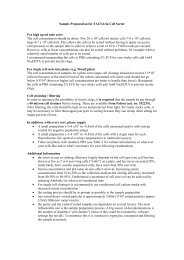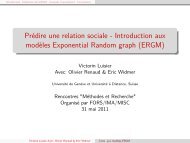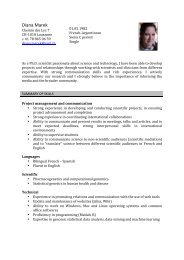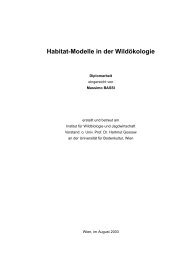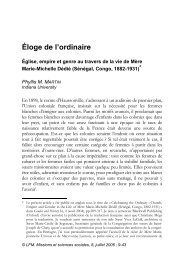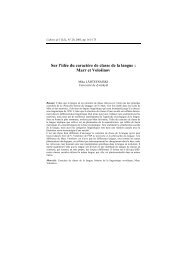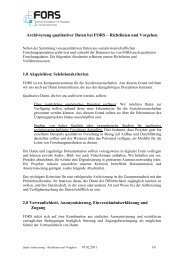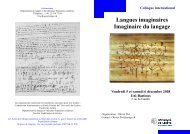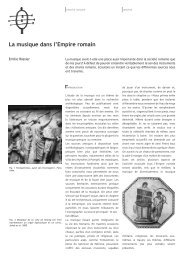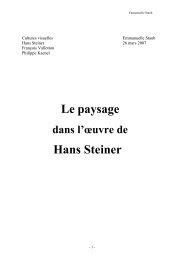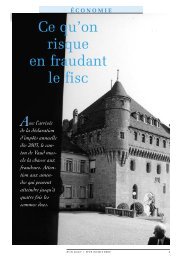conference programme book - European Survey Research ...
conference programme book - European Survey Research ...
conference programme book - European Survey Research ...
Create successful ePaper yourself
Turn your PDF publications into a flip-book with our unique Google optimized e-Paper software.
FRIDAY 22 JULY 1771 Cologne Graduate School in Management, Economics and Social Sciences, Germany; 2 University of Köln, GermanyAlthough communicaon research found a whole bunch of posive effects of newspaper usage on individualcharacteriscs such as verbal abilies or social capital (Glenn 1994, Schmi-Beck 2008), a longitudinal analysisof the determinants of a parcular range of media products based on individual-level data appears to bemissing.4.8 Methodological and technical challenges in surveys of immigrant-backgroundand ethnic minority groups IIITo be held on July 22, 2011 from: 09:00 to 10:30, in room 413.Coordinated by:• Mónica Méndez - Centro de Invesgaciones Sociológicas (CIS), Spain• Laura Morales - Instute for Social Change, University of Manchester, United Kingdom4.8.1 Measurement errors in a quantave survey on migrants. A case study from SalzburgW. Aschauer 11 University of Salzburg, AustriaQuantave surveys in migraon research have to deal with special parcularies and biases. Problems mayarise regarding the definion of the analysed populaon, the sampling procedure and several potenal measurementerrors (e.g. translaon issues, formulang quesons and scale use). Till now there is only lilescienfic research about potenal errors during fieldwork and with regard to the interview condions. Thesepotenal biases are analysed in a case study in Salzburg, where a survey with 187 migrants aending an agencywhich assist foreigners experiencing difficules locang work was conducted. To control for methodologicalproblems, an innovave strategy of fieldwork was adopted. Consultants of the instute filled in a short introductoryquesonnaire together with the migrants (trying to produce a leap of faith)...4.8.2 <strong>Survey</strong> co-operaon of non-autochtonous populaon in Spain: a comparison of the 2008 and 2010ISSP surveysM. Méndez 11 Centro de Invesgaciones Sociológicas (CIS), Spain<strong>Survey</strong> research has pointed out at the generally lower response rate among immigrant/non- autochthonouspopulaon, though this has been challenged by cases in which specific fieldwork strategies addressed at nonautochthonouspopulaon have been put in place.4.8.3 <strong>Survey</strong>ing first- and second-generaon immigrants across <strong>European</strong> countries: Experiences from twocomparave surveysC. Teney 1 , L. Lessard-Phillips 2 , F. Fleischmann 0 , E. Ersanilli 31 Social Science <strong>Research</strong> Centre Berlin (WZB), Germany; 2 Instute for Social Change, University of Manchester,United Kingdom; 3 University of Oxford, United KingdomTwo large-scale surveys have recently aimed to fill the void of comparave <strong>European</strong> survey data on firstandsecond-generaon immigrants. TIES (’The Integraon of the <strong>European</strong> Second generaon’) surveyed thechildren of immigrants from Turkey, Morocco and/or the former Yugoslavia in major cies of eight <strong>European</strong>countries. SCIICS (’Six Country Immigrant Integraon Comparave <strong>Survey</strong>’) surveyed immigrants from Turkeyand Morocco and their descendants in six <strong>European</strong> countries. Both surveys also included a comparison groupof persons of ’nave descent’, i.e., persons born in the survey country with both parents born in the survey



